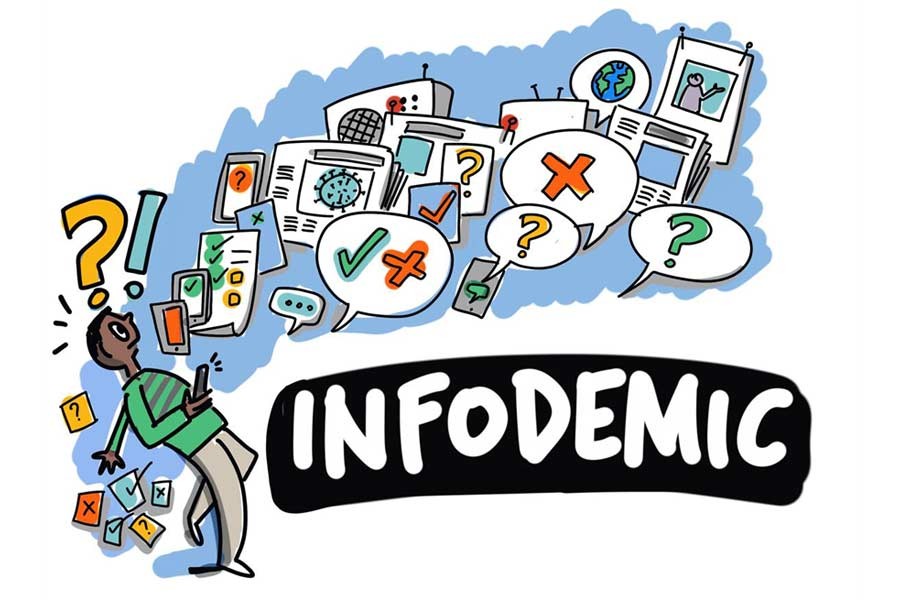Rumour and rumour-mongering have been around since the time humans learnt to compose and express their thoughts. Rumours, mostly a mixture of truth and untruth or half-truth, spread within a community faster than plain truth. A lie can travel halfway around the world before the truth has got its boots on, so goes a proverb.
In fact, people are more attracted to rumours than facts. If not so, why would then people feel like sharing those with friends and acquaintances in the first place?
Rumours contain information that is distorted intentionally or unintentionally. If the distortion is unintended, it is misinformation and if intended, it is disinformation. Both have the potential for harm, but the latter is more harmful because it is meant to be so. And it is more so, if the information so distorted in a rumour is sensitive and important for the public.
In times of crisis, society becomes rife with rumours. As a result, vested quarters often mislead people with disinformation. A rumour that is at heart a disinformation campaign is spread to achieve a definite goal by its disseminators. Studies have shown that a rumour on Twitter can be tracked and verified within two hours of its creation and propagation, if it is true. But if it is false, it takes close to 14 hours to catch up with it and debunk. Fake news or rumour will travel online through the social media for hours, around 13 hours, according to a study, before it could be checked through putting the correct information online to quash it.
So, there is a long time-lag of over a day before the message could be fact-checked and countered with the truth. During this time-lag it can influence the gullible.
We are already witnessing how deadly false rumours on the social media can become. One may recall how a frenzied mob driven by a false rumour that someone had desecrated Islam's holiest book, the Kor'an, beat up Shahidunnabi Jewel, poured petrol on his body and then set it on fire. Fear-mongering about child-lifters stalking every nook and cranny of the cities and the villages doing the rounds on the social media, Facebook, and the mobile messaging app, WhatsaApp, led to the lynching of dozens of innocent men and women in India and Bangladesh!
The social media, a modern digital technology-based publicity tool, has thus become a weapon in the hands of the purveyors of canards, especially, of hate politics.
False propaganda on the social media can also cause immense damage to any good cause. The raging pandemic, Covid-19, that in the meantime has caused death to more than 1.4 million people worldwide is still a 'hoax' to many in the USA, Europe and other parts of the globe. According to a study done by the Cornell University of the USA in October, US President Donald Trump has been found to be the biggest driver of misinformation about the pandemic. As such, many in the US including the president himself are against wearing mask thinking it's all bunkum. And the consequence of such deliberately disseminated misinformation is for all to see: more than 12.76 million confirmed cases and over a quarter million (260, 000 plus) reported deaths in the US so far.
A similar instance of irresponsibility on the part of the political leadership has been behind the devastating impact of the pandemic in Brazil.
The World Health Organisation, WHO, had pointed exactly to this when in February it warned the public of the dangers of 'infodemic'. Infodemic is a portmanteau word created out of the words 'information and 'epidemic' to make it rhyme with pandemic. The idea is to demonstrate that 'a false rumour about the pandemic', 'the infodemic,' when circulated on the social media can be compared to an infectious disease that is no less deadly than the pandemic.
Bangladesh is also no stranger to infodemic. Many still think the pandemic is a hoax of Western origin.So they do not bother to wear mask as a protection against the pandemic.


